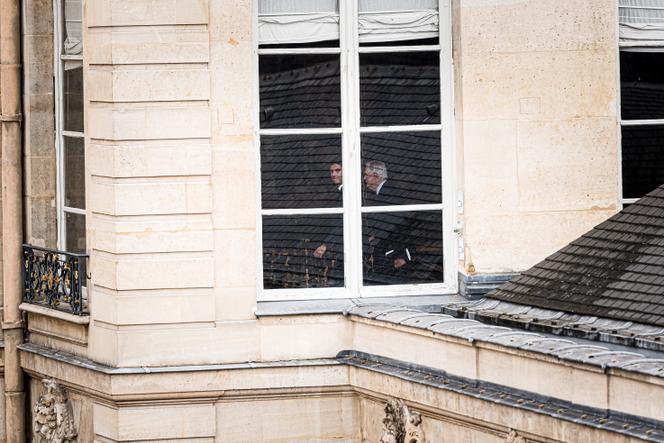


The appointment of Michel Barnier to the position of French prime minister, on September 5, was the result of a long period of hesitation on President Emmanuel Macron's part. Under the French public's scrutiny, Macron tested various options – from the right, the left or from civil society – only to reject them one by one. Here's a behind-the-scenes account of the strange shell game.
Having left on vacation resigned to taking on the opposition role she knows only too well, Marine Le Pen found herself back in the thick of things when she returned prematurely, at the end of August.
"We understood it as soon as the Nouveau Front Populaire [NFP, left-wing alliance] spoke of an automatic vote of no confidence if the prime minister was not [the NFP4's candidate] Lucie Castets, and the Elysée set the absence of a no-confidence vote as a rule," explained Renaud Labaye, a member of the far-right Rassemblement National's (RN) leadership at the Assemblée Nationale. "Arithmetically, we were the ones becoming the decision-makers. And as we became so, Marine gave her criteria." When meeting with Macron on August 26, as other party leaders had previously, the duo formed by Le Pen and party president Jordan Bardella rejected a government stemming from the NFP in advance, and demanded a prime minister that would be "respectful of RN voters," or else they would vote to topple the government.
Le Pen had not forgotten the "republican front" organized at the beginning of July, which deprived her of several dozen seats in the second round of parliamentary elections. The RN's exclusion from the top jobs art the Assemblée Nationale made her even less accommodating. "They wanted to marginalize us? We won't do them any favors," said a delighted member of her entourage. Le Pen would give the "thumbs down" or "thumbs up" as the Elysée's list of potential nominees unfolded.
After two rounds of consultations with the country's political parties, Macron was hitting a dead end at the end of August. He felt he had demonstrated that a government led by Lucie Castets, the NFP candidate, would be immediately toppled. However, the two parties with experience of government, the Parti Socialiste (PS, left) and Les Républicains (LR, right), had refused to enter into a coalition with the presidential bloc.
He was, therefore, considering a "non-political" solution. Former CFDT union leader Laurent Berger, who was contacted on the subject of the premiership on August 27, turned down the president's offer. Then, two days later, Macron called Thierry Beaudet, the head of the Economic, Social and Environmental Council (CESE), an advisory assembly. Beaudet initially thought he would be consulted by the president in the same way as the presidents of the chambers of Parliament had been. "In the end, perhaps the right solution is to have someone from civil society," Macron told him, speaking from Belgrade, where he was on an official visit. "Why not someone like you?" The left-leaning former head of a federation of non-profit health insurance companies initially rebuffed the idea. "I'd like to continue the discussion," insisted Macron, who invited him to the Elysée the following afternoon, on his return from Serbia.
You have 73.79% of this article left to read. The rest is for subscribers only.
